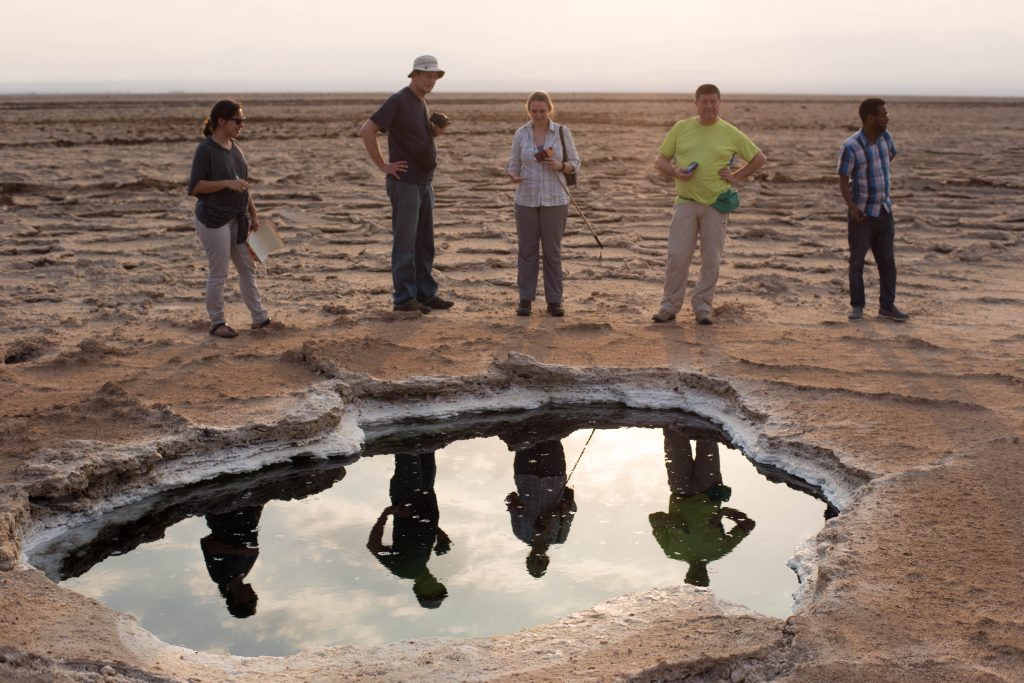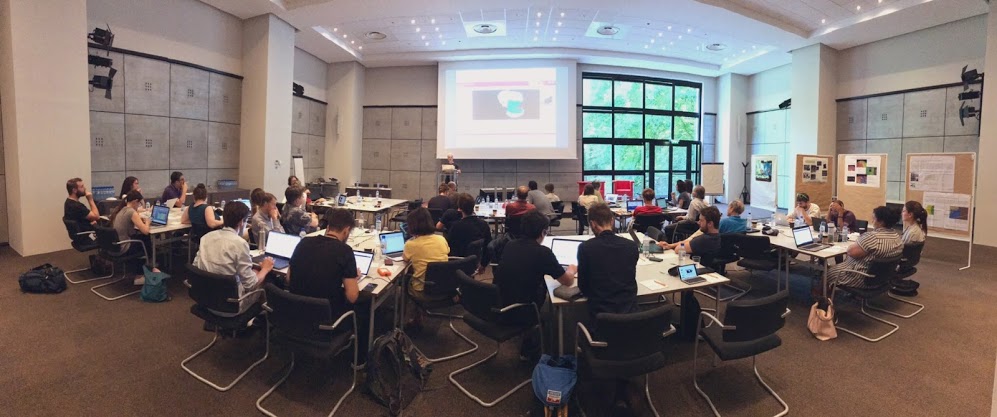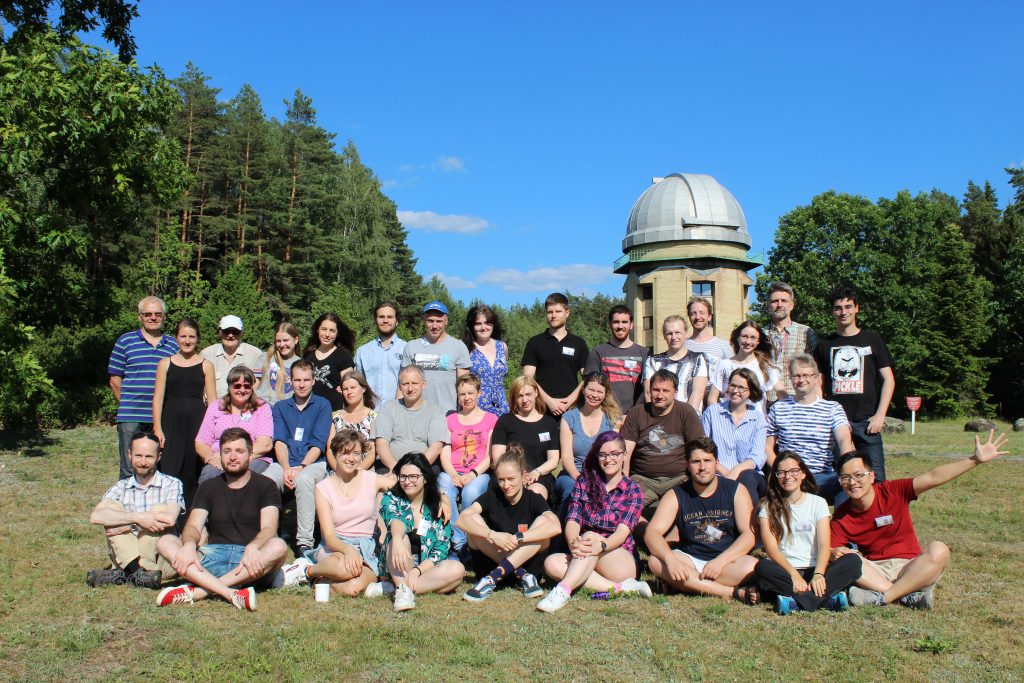Impacts of Europlanet 2020 Research Infrastructure
As we prepare to submit the final report for Europlanet 2020 Research Infrastructre (RI), which ran from 1st September 2015 – 31st August 2019, we look back at some of the achievements and outcomes.
What was Europlanet 2020 RI?
Europlanet received €9.95 million funding under the European Commission’s Horizon 2020 programme to implement an advanced research infrastructure for planetary science. Europlanet 2020 RI was coordinated by the Open University, UK, with 34 beneficiary institutions from 20 European countries.
As a mature service, Europlanet 2020 RI placed particular emphasis on widening the participation of previously under-represented research communities and stakeholders, including the newer EU Member States.
Europlanet 2020 RI has provided:
• Free transnational access to world-class laboratory facilities that simulate conditions found on planetary bodies, as well as analogue fields sites for Mars, Europa and Titan.
• Virtual access to the diverse datasets and visualisation tools needed for comparing and understanding planetary environments in the Solar System and beyond.
• Networking activities, including meetings, workshops and personnel exchanges, to strengthen the community, develop industry-academic collaboration, discuss the latest scientific results, and set the strategy and goals for planetary science in Europe for decades to come.
• Outreach and education programmes to engage Europe’s citizens, teachers, students and policy makers with cutting-edge planetary science and exploration.
Transnational Access impacts:

- The 5 calls for Transnational Access generated 320 applications and 195 completed visits to facilities
- Over 1400 days of access were provided to state-of-the-art planetary laboratory facilities and field sites, resulting in high impact publications, including in the Nature and Science family of journals.
- Europlanet 2020 RI assembled the world’s largest coordinated collection of planetary simulation and analysis facilities.
- Sample return handling protocols and ultra-sensitive isotopic analysis techniques have been augmented through Europlanet 2020 RI.
- Capabilities have been extended at the Wind Tunnel Simulators at Aarhus for simulations under Mars and Titan environmental conditions with funding from through Europlanet 2020 RI.
- New spectro-goniometers have been developed at Grenoble with improved sensitivity down to very low albedos and the ability to measure small samples such as rare meteorites.
- DLR’s high temperature chamber has been upgraded; it is now the only facility worldwide capable of performing spectral measurements of Venus surface analogues at realistic surface temperatures.
- The Danakil Depression has been characterised as a terrestrial analogue for extreme hydrothermal environments on Mars, Venus, Io and Ganymede.
- 1013 Ohm resistors validated within Europlanet 2020 RI have been released by ThermoFisher as a commercial product, opening up new potential applications for a very broad range of planetary and non-planetary users.
Virtual Access Impacts:

- Over 50 planetary datasets are now accessible through the VESPA (Virtual European Solar and Planetary Access) virtual observatory developed through Europlanet 2020 RI. http://vespa.obspm.fr/
- The Europlanet Table Access Protocol (EPN-TAP) developed for VESPA has been adopted as standard by the International Planetary Data Alliance and ESA’s Planetary Science Archive.
- Planetary Space Weather Service (PSWS) toolkits created to track planetary or solar events through the Solar System have attracted over 15,000 users from academia and industry worldwide.
Networking Activity Impacts:

- 84 workshops and training sessions organised during Europlanet 2020 RI have been attended by more than 3,000 researchers, industrial representatives, outreach professionals, teachers and policy makers.
- Over 1,200 EU companies have been identified with an interest in provision of solutions or services to planetary scientists, or with an interest in recruiting planetary graduates.
- Thousands of media stories on planetary results have been generated around the world.
- More than 130,000 Euros of seed-funding from Europlanet 2020 RI has supported outreach projects across Europe.

